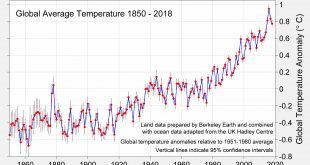from Richard Norgaard Economistic beliefs are not detrimental because they are mere beliefs. People need a belief system to live together. Yuval Harari develops this argument around the following statement. “Any large-scale human cooperation – whether a modern state, a medieval church, an ancient city, or an archaic tribe – is rooted in common myths that exist only in people’s collective imagination” (Yuval Harari, 2014, p. 30) Many critiques of the recent neoliberal economy make the same...
Read More »Mainstream versus Minsky
from Asad Zaman Krugman fails to understand Minsky On the one hand, Minsky has been transformed from an eclectic outcast to a darling of the mainstream after the crisis. On the other hand, Krugman and others have failed to appreciate the central insights of Minsky, just as they did with Keynes. While Keynes had completely rejected mainstream theories on solid grounds, Hicks and Samuelson constructed a neoclassical synthesis which conceded the short-run to Keynes on the basis of short run...
Read More »Open thread March 26, 2019
Capitalist priority to growth and profits over people and planet
from Richard Smith Given this unprecedented existential crisis one might expect governments would responsibly meet this climate emergency with emergency plans to prevent ecological collapse bold proposals for “deep emissions reductions in all sectors,” for “far-reaching transitions in energy, land, infrastructure, and manufacturing” and so on. After all, the 2018 IPCC 1.5°C report makes clear that on present trends we could be facing the collapse of agriculture in California, the Great...
Read More »Global average temperature 1850 – 2018
The real college admissions scandal is structural inequality
from Dean Baker The indictments last week of a number of prominent people for paying bribes to get their children into elite colleges was perhaps more amusing than shocking. The fact that rich people are often able to buy their kids into schools is hardly a secret. After all, who believes that Donald Trump would have been accepted at the University of Pennsylvania, or his son-in-law Jared Kushner would have been attending Harvard, had it not been for their wealthy fathers? We also know...
Read More »Economism
from Richard Norgaard We live in the era of Economism. Human consciousness is deeply etched by economistic beliefs in individualism, materialism, property, markets, economic growth, and freedom as consumer choice. These beliefs are necessary to sustain the system that supports us. But the economy we have is unlikely to support our grandchildren. Natural scientists argue that we are in a new geologic era, the Anthropocene, where people have become the major force in changing the geosphere:...
Read More »Populism in the Time of Neoliberalism
The way of the world in recent and present time is the preach and the practice of neoliberalism, of pushing markets to their extremes. The Turkish writer and political analyst Ece Temelkuran in her new book How to Lose a Country: the Seven Steps from Democracy to Dictatorship, draws on her Turkish experience and applies its lesson elsewhere, notably to Trump’s America. What is the relationship between neoliberalism and populism? Temelkuran sees a link and makes a most...
Read More »Populism in the Time of Neoliberalism
The way of the world in recent and present time is the preach and the practice of neoliberalism, of pushing markets to their extremes. The Turkish writer and political analyst Ece Temelkuran in her new book How to Lose a Country: the Seven Steps from Democracy to Dictatorship, draws on her Turkish experience and applies its lesson elsewhere, notably to Trump’s America. What is the relationship between neoliberalism and populism? Temelkuran sees a link and makes a most insightful point:...
Read More »Certain decisions
from Peter Radford One of the books I keep close by on the shelf is Paul Glimcher’s “Decisions, Uncertainty, and the Brain: The Science of Neuroeconomics”. It dates back to 2004 and is one of those books that provides a glimpse of what a dialog between economic theory and psychology might produce. More to the point it explores the issues surrounding economic decision making at a deep biological level. It thus adds substantially to the behavioral explanation of economic activity. Apart...
Read More » Heterodox
Heterodox

